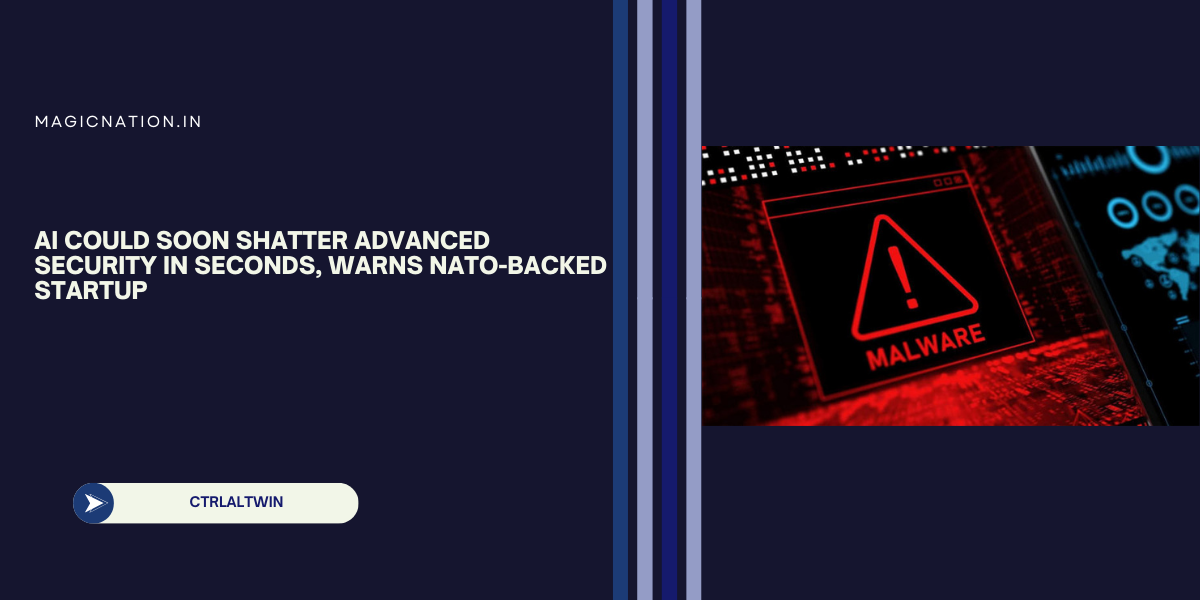 Heya Explorers!
Heya Explorers! This is Tej, your techie, back with another volume of your favorite tech series - Tech Roundtable. Today, let's dive into the discussion about Cybersecurity. With the increasing digitisation in the modern era, the cybersecurity arms race is intensifying. As tech evolves day by day, parallely, the tactics of hackers and defenders also evolves. The advancements in AI, machine learning, or data encryption prompts a parallel advancement in cyber threats, which are becoming increasingly targeted.
So, the question arises… Are we truly prepared for the next big cyber threat? Let us discuss that in various sub topics for a better conclusion!
One of the most significant developments in cybersecurity is the use of artificial intelligence (AI). Hackers now use AI to develop more efficient and targeted attacks, automating the creation of phishing emails, fake websites, and even malware that can bypass traditional security systems. With AI, they can analyze an organization’s vulnerabilities at a larger scale, potentially breaching defenses before any action for rectifications can be made.Inclusion of AI in automating Cyber Threats
 On the positive side, cybersecurity professionals are also taking the help of AI to improve defenses, using it to analyze threats, detect vulnerabilities, and respond to attacks in real time. However, as security systems become smarter, so do the threats they face. Tech experts worry that AI tools, if hacked, could be turned against their users, creating a security paradox.
On the positive side, cybersecurity professionals are also taking the help of AI to improve defenses, using it to analyze threats, detect vulnerabilities, and respond to attacks in real time. However, as security systems become smarter, so do the threats they face. Tech experts worry that AI tools, if hacked, could be turned against their users, creating a security paradox.
Despite technological advancements, human error remains one of the most significant vulnerabilities. Studies consistently show that many data breaches occur due to simple mistakes, such as falling for phishing attacks or using weak passwords. Training everyone to recognize threats and respond appropriately is a crucial component of any cybersecurity strategy. Even the most advanced defenses can be tackled by a lack of awareness among users. [This gives us a moral to use strong passwords and have technical awareness!Margin of Error by Humans

Cyber threats don’t respect borders. In fact, in the modern era, the cyber scams are considered to be the most powerful weapon that causes internal, information, financial and technological losses as well as holds the power to take lives of people of countries! And in an interconnected world, a breach in one country can have consequences on a global scale. Thus, cybersecurity requires international cooperation.The Case for Global Cooperation
Currently, there are few universally accepted policies or regulations for managing cyber threats across borders. A more coordinated approach, such as an international cybersecurity treaty, could improve defenses, streamline responses, and reduce the ability of hackers to exploit legal loopholes in different jurisdictions.
Preparing for the Future

As the cybersecurity arms race continues, the next big threat will likely come in a form we haven’t yet anticipated [just like the recent incident of Pagers Blast XD.] A global approach for continuously evolving our defenses, prioritizing cybersecurity education, and encouraging governments, organizations, and individuals to work together can cause a drastic decrease in the number of cyber scams.
As we come to the end of this volume, we can say that no system is infallible, a layered approach — combining technology, training, and international collaboration — will be essential in preparing us for whatever threats lie ahead. Only through coordinated efforts can we hope to stay ahead in this ever-evolving battle.
Summing Up…
Hope y’all loved giving read to the thread. Don't forget to drop your views about this in the Comments!













